
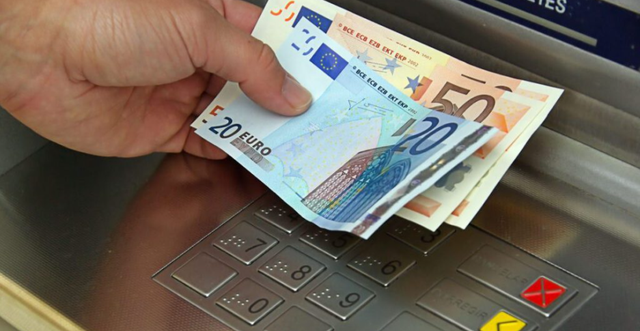
The Euro/Lek exchange rate hit a new historical low on Tuesday, falling below 98 Lek for the first time. The Euro's decline in the second half of April and the first days of May coincided with the final phase of the May 11 election campaign.
For this reason, there are foreign exchange agents who think that this exchange rate performance may have been partially influenced by the election campaign.
If we look at the exchange rate data during the last four elections, namely two weeks before and two weeks after their holding, some fluctuations are observed, but they do not show a uniform trend in all cases.
In the last local elections, on May 14, 2023, in the days before the elections there was a drop in the Euro exchange rate to 110.82 lek (from 111.32 lek which was a week before the elections). After the elections, the exchange rate marked a rapid increase to 113.4 lek, but this increase did not last long and by the end of the month the exchange rate reached even lower levels than before the elections.
In the 2021 general elections (April 25), the “election” fluctuations were not very large and not in the same direction. Even then, there was a very small drop a few days before the elections (from 123.13 to 123.06 lek), but the exchange rate increased again before the elections and in the first days after them. Then, during May, the exchange rate fell again to previous levels, below 123 lek.
In the 2019 local elections (June 30), no decline in the Euro exchange rate was observed in the days leading up to the elections; on the contrary, movements were mainly in the direction of a slight increase. In the last 10 days before the elections, the exchange rate increased from 121.65 lek to 122.65 lek. Subsequently, the exchange rate returned to decline and two weeks after the elections it reached approximately the levels it had been at two weeks before.
In the 2017 general elections (June 25), there was a clearer trend of the Euro’s exchange rate falling before the elections. In the two weeks before the elections, the Euro lost approximately 1.6 lek (from 133.57 lek to 131.98 lek), and then rose again above 132 lek. The level of 131.98 lek was also the lowest recorded for the whole of 2017.
From the observation of the exchange rate performance during election periods, fluctuations are observed, however they do not always show a one-way trend.
Moreover, in recent years the exchange rate has generally been characterized by increased volatility in short-term time intervals. Election periods are no exception and do not exhibit particularly noticeable amplitudes of movement in the annual exchange rate curve.
For this reason too, it is difficult to say whether and to what extent exchange rate fluctuations in an election period are necessarily related to the elections. / Monitor
Latest news


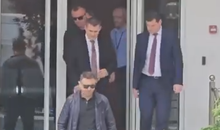
Hetimi për krimet zgjedhore, Altin Dumani zbarkon në Prokurorinë e Shkodrës
2025-05-08 13:06:21
DASH paves the way for Berisha, Alizoti: Great news on the eve of Great Albania!
2025-05-08 13:03:48

"Freedom works", DP welcomes the US position
2025-05-08 12:48:07

Black smoke rises from the Sistine Chapel, the Vatican still without a Pope
2025-05-08 12:26:18





Davide Pecorrelli extradited to Albania
2025-05-08 11:29:04
'May 11, Albania will react', Xhaferri: Electoral criminals will pay
2025-05-08 11:21:46

Gjin Gjoni: Non Grata fell, Rama should get ready to go to McGonigal
2025-05-08 11:01:54
May 8th deadline for immigrants to vote in Greece extended by one day
2025-05-08 10:48:42
Collapse of massive chrome structure, still no trace of 29-year-old
2025-05-08 10:40:04
Vehicle bursts into flames in Paris Commune
2025-05-08 10:25:43
He gave land to his father and cousin, Basir Çollaku denounces the SP candidate
2025-05-08 10:16:16
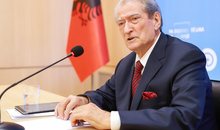


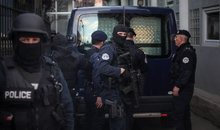
Electoral Crimes/ BKH agents and Police conduct checks in Shkodra
2025-05-08 09:19:13
3 associates of Talo Çela arrested in Dubai
2025-05-08 09:02:28
Mouse in the owl's claws, Chris LaCivita responds directly to Rama
2025-05-08 08:45:40
Foreign exchange, how much foreign currencies are sold and bought today
2025-05-08 08:30:38
BIRN: Organized crime, the 'invisible party' of the Durrës elections
2025-05-08 08:26:35
Horoscope, what do the stars have in store for you today?
2025-05-08 08:08:15
Cloudy and rainy, what the weather is expected to be like throughout the day
2025-05-08 07:52:13
Posta e mëngjesit/ Me 2 rreshta: Çfarë pati rëndësi dje në Shqipëri
2025-05-08 07:40:16


Rama attacks Bardhi: Fier cannot be represented by the world's gas
2025-05-07 22:36:22

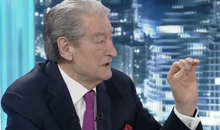
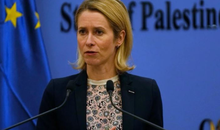
EU calls on Israel to lift humanitarian blockade in Gaza
2025-05-07 21:42:34
"Russia is "asking for a lot"! Vance calls for direct Moscow-Kiev talks
2025-05-07 21:20:16
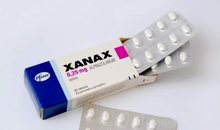




Bank of Albania sets limits on home loans, Sejko: The maximum will be 85%
2025-05-07 20:16:10

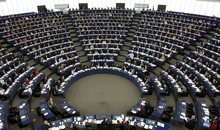
EP calls for immediate lifting of measures against Kosovo
2025-05-07 19:39:58





Accident on the Elbasan-Peqin axis, three police officers injured
2025-05-07 18:18:35

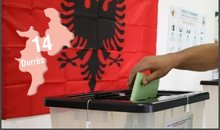
Durrës, a key mandate for the future majority is at stake
2025-05-07 17:34:00

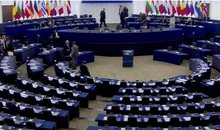

Truck collides with ambulance, police: Nurse and patient's father among injured
2025-05-07 16:51:06
The SP MP and minister "join the DP", support Jorida Tabaku with two fingers up
2025-05-07 16:33:41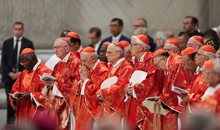


A dose of cocaine was found on him, the candidate for MP in Saranda was arrested
2025-05-07 16:02:52
Truck and ambulance collide on the Fier-Lushnjë axis, four injured
2025-05-07 15:51:13

4 ways to avoid spring viruses
2025-05-07 15:28:08
A weapons workshop was found in the north, Kosovo Police arrest one person
2025-05-07 15:13:40
Campaign Scandal: How Students Are Being Misused for Rama's Electoral Calendar
2025-05-07 15:08:07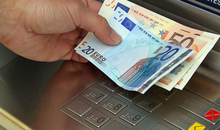
Do elections affect the exchange rate?
2025-05-07 14:54:54
Election materials arrive in Lushnja and Divjaka
2025-05-07 14:40:15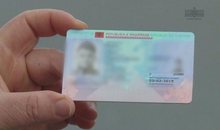
The validity period for identity documents expiring by May 11 is extended
2025-05-07 14:29:25


3 public questions about Irena with 3 surnames
2025-05-07 13:50:35

44 reports of electoral crimes/ Tirana, Fier and Dibra lead in irregularities
2025-05-07 13:30:39
16-year-old Albanian boy goes missing in Northern Ireland
2025-05-07 13:21:25
Loneliness at a young age: Why young people feel more isolated than ever before
2025-05-07 13:13:27
Why did India attack Pakistan with missiles?
2025-05-07 12:56:49

Bebe Rexha confesses the pain that no one saw at the Met Gala
2025-05-07 12:34:39
Citizens protest for Vlora airport in front of the Supreme Court
2025-05-07 12:21:00
"Giro d'Italia", here are the road axes that will be blocked in Elbasan
2025-05-07 12:10:54
US support for family values, Vicky Hartzler supports Jonathan Panos
2025-05-07 11:58:08
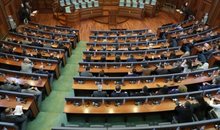
Kosovo in political deadlock, attempt to constitute Parliament fails again
2025-05-07 11:31:51
45-year-old man arrested in Tirana, raped his wife and children, then shot them
2025-05-07 11:19:12
Disappearance of Jan Prenga, hearing postponed for Dritan Rexhepi and others
2025-05-07 11:10:46
BIRN: Tourism investments in Durres spark accusations of electoral gains
2025-05-07 10:59:10




DP closes campaign on May 9, Berisha: We conclude a journey, we begin a mission
2025-05-07 10:02:03
Doctors: 5% of children affected by asthma
2025-05-07 09:50:22
